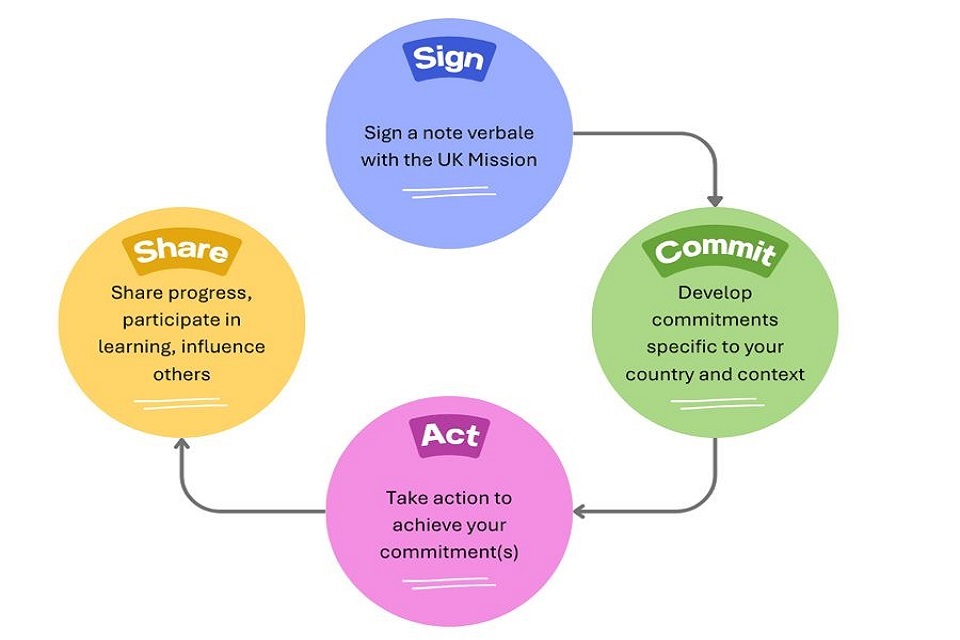Global Campaign on Children’s Care Reform: overview
Updated 20 October 2025
A call to action: making an impact, together
In January 2025, the then Foreign Secretary of the United Kingdom, Rt Hon David Lammy MP, launched a bold and visionary initiative: to transform the lives of children globally so that all children are cared for in families and free of violence, exploitation and other harmful practices.
Through this new campaign governments, civil society, faith groups, and individuals with lived experience of care systems are calling on world leaders to join forces in a global movement that harnesses decades of international progress to ensure all children are growing up in a safe, nurturing and loving family environment. This overview calls on government leaders to join this movement. Together we aim to:
- strengthen families and prevent unnecessary separation
- ensure safe, family-based alternative care
- end the use of institutions for children around the world
The Global Charter on Children’s Care Reform puts this vision into reality and is a call for world leaders to act together to:
- uphold the UN Convention on the Rights of the Child and the UN Convention on the Rights of Persons with Disabilities
- invest in families, children, care leavers, and inclusive services
- end violence against children and harmful practices like orphanage tourism
And deliver lasting change for future generations.
Why this matters
- every child deserves the best start in life within caring families and communities
- globally, there are over 5.4 million children living in institutions
- young people say their experience of living in institutions “leaves lifelong challenges and we don’t want another generation to suffer the same fate”
- most children in institutions are not orphans – they are there due to poverty, lack of services, and other solvable factors
- institutions harm children’s short- and long-term development
- children with disabilities are 17 times more likely to be institutionalised due to stigma, discrimination and lack of proper support and services
- family-based care is more effective and cost-efficient than using institutions
- care reform is an investment in human capital and national growth
Who is joining the movement?
In January 2025 in Bulgaria, the then Foreign Secretary, Rt Hon David Lammy MP, launched this new global initiative. Since then, several countries and international organisations have formally joined the United Kingdom in turning this vision into reality.
Experts including academics, civil society groups, UNICEF, UN Special Representative on Violence against Children and young people with lived experience of living in care have all contributed to bringing the Charter to life – a powerful signal of support. Now, all governments are invited to formally join this movement and stand alongside other global leaders who are redefining how the world supports and protects its children.
What is required?
Process to join the global movement

Charter signatories are encouraged to:
- demonstrate leadership by implementing the Charter’s objectives and commitments in ways that reflect national priorities and local realities
- join a global movement of governments working together to drive transformative change, amplifying your country’s voice and influence on the world stage
- inspire and be inspired across countries by sharing experiences, progress, and lessons learned, helping shape more effective interventions and investments around the world
- define the country’s own priorities and commitments to advance family care for all children within its national context
- participate in periodic learning events and exchanges to showcase their progress and to learn from peers. While there is no mandatory financial contribution, countries are encouraged to mobilise the necessary resources to deliver on their commitments
Why sign?
Charter signatories are both reaffirming commitments [footnote 1] already made and making new pledges/commitments to act. Countries that sign the Charter will:
- be recognised as a champion on this issue and have a global stage to showcase achievements and successes
- access global best practices and peer learning
- be eligible for technical assistance from FCDO-funded experts
- be invited to networking and learning events amongst other global leaders
Overall countries will benefit from the transformative impacts that safe and nurturing family-based care can have including on poverty reduction, strengthening human capital and bolstering state and community resilience.
How to join
Countries: To join other leaders and become part of this global alliance, lead Ministries can confirm support by sending a note verbale (or Ministerial-level letter) to the United Kingdom Mission in their country. Questions can be sent to the UK Mission in your country.
Organisations: To confirm your organisation’s endorsement of the Global Charter, email a letter from your President/CEO/Chair/Director to: childrenscarereformcampaign@fcdo.gov.uk
-
Signatories will reaffirm their commitments to the UN Guidelines for the Alternative Care of Children of 2009, the UN General Assembly Resolution on the Rights of the Child with a focus on children without parental care of 2019, and the UN Committee on the Rights of Persons with Disabilities Guidelines on Deinstitutionalisation of 2022, and, when applicable, the Kigali Declaration of Commonwealth States of 2022 and the Global Ministerial Conference on Ending Violence against Children call to action of 2024. ↩
